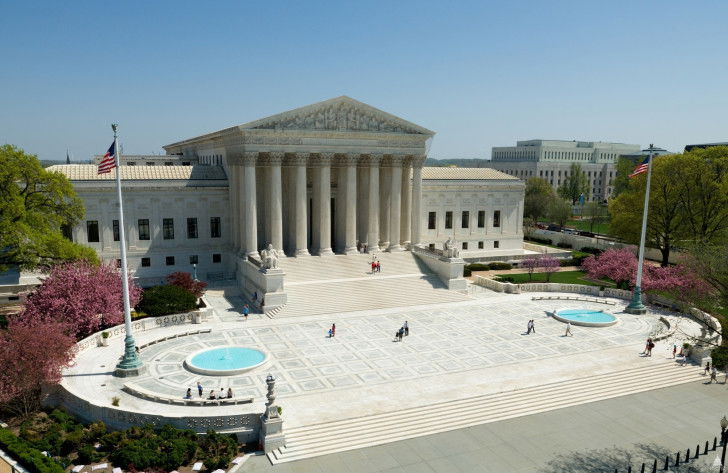America
US Supreme Court strikes down race-based affirmative action in college admissions

Washington, June 29
In a landmark judgment, the US Supreme Court on Thursday declared race-based affirmative action in college enrollment unconstitutional.
The court held affirmative action violative of the US Constitution’s 14th Amendment, which guarantees equal protection.
All six conservative justices, including Chief Justice John Roberts, ruled to strike down affirmative action, while the three liberals ruled against.
The court’s ruling came in a challenge to the race-based affirmative action by Harvard and University of North Carolina.
“The student must be treated based on his or her experiences as an individual—not on the basis of race,†Chief Justice Roberts wrote in the majority opinion.
“Many universities have for too long done just the opposite. And in doing so, they have concluded, wrongly, that the touchstone of an individual’s identity is not challenges bested, skills built, or lessons learned but the color of their skin. Our constitutional history does not tolerate that choice.â€
Roberts added that the court had previously “permitted race-based admissions only within the confines of narrow restrictions. University programs must comply with strict scrutiny, they may never use race as a stereotype or negative, and -- at some point -- they must endâ€.
Justice Sonia Sotomayor wrote in her dissent note for the minority decision that the ruling “rolls back decades of precedent and momentous progress. It holds that race can no longer be used in a limited way in college admissions to achieve such critical benefitsâ€.
“In so holding, the Court cements a superficial rule of colorblindness as a constitutional principle in an endemically segregated society,†she added.
But the court allowed for colleges to consider race in discussions in the admission process — an applicants can bring up race in their essays and applications forms as a factor in their life, as an impediment or an inspiration.
Roberts wrote that “nothing in this opinion should be construed as prohibiting universities from considering an applicant’s discussion of how race affected his or her life, be it through discrimination, inspiration, or otherwiseâ€.
While the ruling will end affirmative action based on race, universities would be able to switch to using socio-economic factors in the admission process, which could be based on the applicants’ family incomes or residential address.

10 hours ago
Air India cancels multiple flights as Ethiopian volcanic ash drifts into Indian airspace

10 hours ago
India and EU discuss shared security challenges, early conclusion of defence partnership

10 hours ago
Netanyahu's office working on new date for visit, says Israeli PM has 'full confidence' in India's security under PM Modi

16 hours ago
After Hindu protest, global online retailer Shein removed Lord Ganesh blanket & doormat

17 hours ago
As Deol family battles grief, here's how Karan Deol fulfils final responsibilities for grandfather Dharmendra

17 hours ago
Juhi Chawla revisits her childhood obsession with Dharmendra’s classic ‘Sholay’

17 hours ago
Manoj Bajpayee talks about Nagaland and how its people are connected with nature

17 hours ago
Riteish Deshmukh shares how son Riaan helps him appreciate life’s simple joys

17 hours ago
Kareena Kapoor wishes ‘darling bro’ Armaan Jain on b’day: Can’t wait to celebrate soon

17 hours ago
Vijay Sethupathi welcomed on board the unit of Vetrimaaran's 'Arasan'

17 hours ago
President Murmu tells young IRS officers to uphold integrity, fairness

17 hours ago
Gujarat to hold padyatra in honour of Sardar Vallabhbhai Patel

17 hours ago
When Dharmendra brought the horrors - and bravery - of the 1962 war to all Indians' homes






















